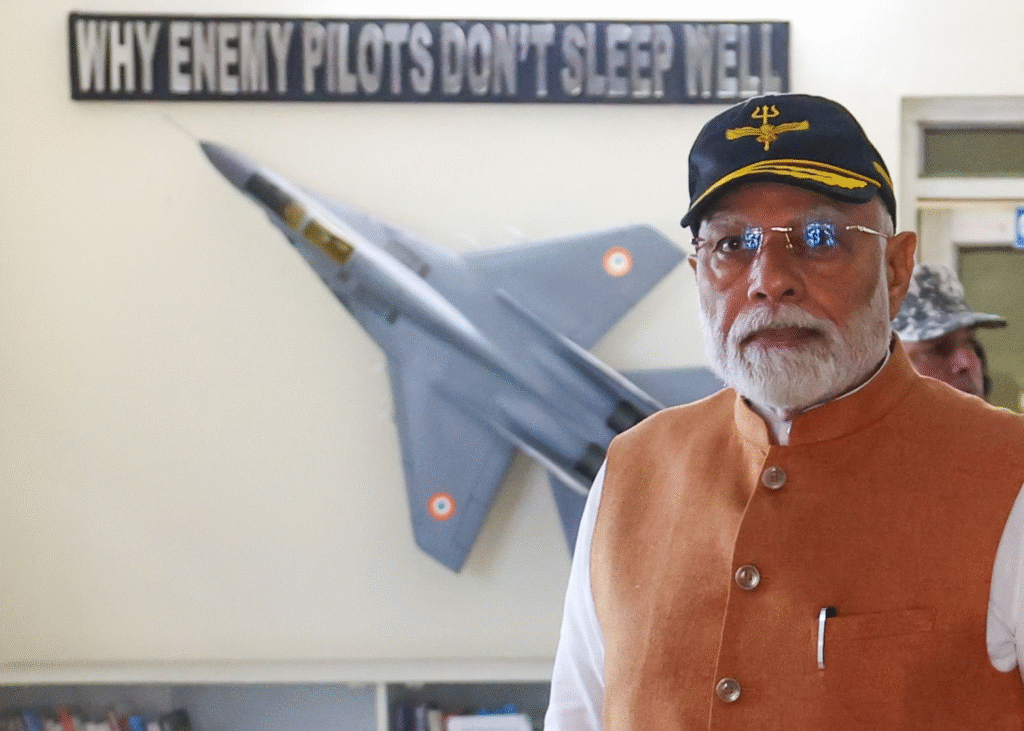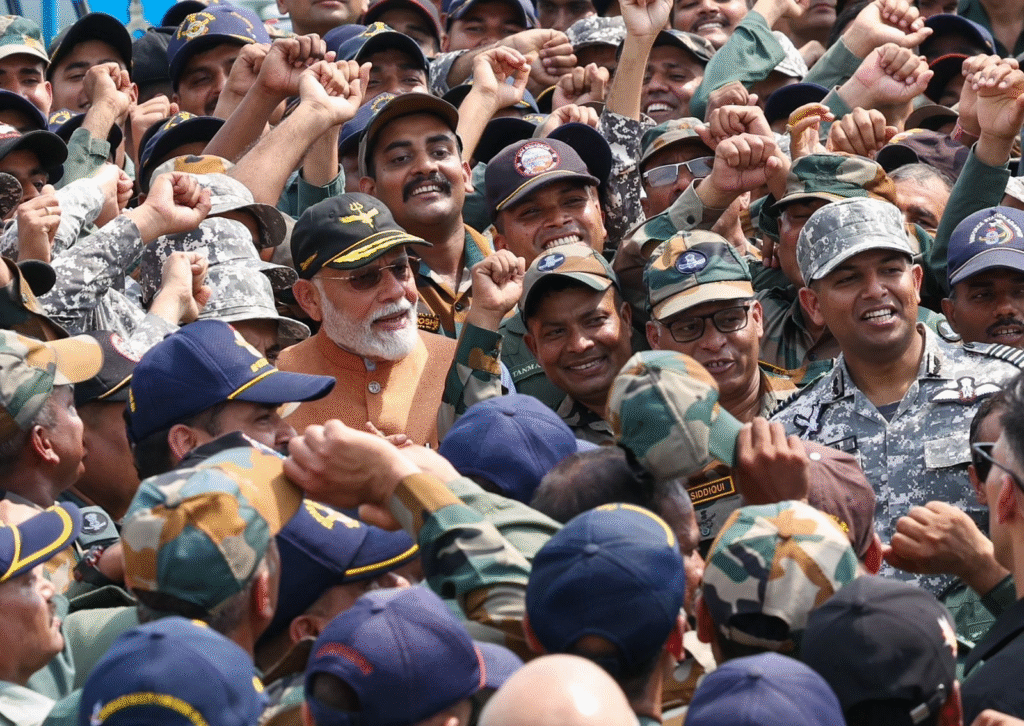Amid heightened Indo-Pak tensions, PM Modi visits Adampur air base in Punjab to boost jawans’ morale, while Defence Minister Rajnath Singh holds high-level national security review in Delhi.

New Delhi/Adampur, May 13 – Amid simmering tensions between India and Pakistan, Prime Minister Narendra Modi paid a surprise visit to the Indian Air Force’s Adampur Air Base in Punjab on Tuesday. In a powerful display of solidarity with the armed forces, PM Modi interacted with jawans, boosting morale following India’s strategic strikes under Operation Sindoor.
The Prime Minister’s visit came just days after intense cross-border military engagement and precision strikes targeting terror infrastructure in Pakistan and Pakistan-occupied Kashmir (PoK). During his visit, Modi was briefed by senior Indian Air Force (IAF) officials on current operational preparedness and future strategy.
PM Modi at Adampur: A Message of Resolve and Respect

Prime Minister Modi, known for standing shoulder-to-shoulder with India’s armed forces during national crises, spent considerable time with air warriors at Adampur. Speaking to the jawans, Modi praised their courage and commitment. “The nation sleeps peacefully because of your unwavering vigilance. India will not back down in the face of terrorism,” he said, according to sources.

His visit was symbolic yet significant—showing India’s resolve not just to defend its territory but to take proactive measures when provoked.
Defence Minister Reviews Security With CDS, Service Chiefs
Back in New Delhi, Union Defence Minister Rajnath Singh chaired a high-level meeting to review India’s national security situation. The meeting was attended by Chief of Defence Staff (CDS) General Anil Chauhan, Army Chief General Upendra Dwivedi, Navy Chief Admiral Dinesh K Tripathi, and Defence Secretary Rajesh Kumar Singh.
According to Defence Ministry sources, the core focus of the meeting was the volatile security situation along the Western frontier with Pakistan, following the recent escalation in cross-border tensions.
Operation Sindoor: India’s Measured Retaliation
The current standoff began after a gruesome terror attack on April 22 in Pahalgam, Jammu & Kashmir, where 26 civilians—mostly tourists—lost their lives. India launched Operation Sindoor on the night of May 6-7, targeting multiple terror camps and launchpads across PoK.
In response, Pakistan escalated by initiating heavy shelling across sectors like Poonch, Kupwara, Baramulla, Uri, and Rajouri. India retaliated on May 8 with a focused strike on Pakistani air defence infrastructure, including disabling a key system in Lahore.
By May 10, the Indian Air Force had launched precision strikes on six major Pakistani air bases—Rafiqui, Murid, Chaklala, Rahim Yar Khan, Sukkur, and Chunian—as well as radar stations at Pasrur and Sialkot.
Pakistan’s Drone Attacks and Ceasefire Violation
Pakistan attempted to retaliate with coordinated drone and missile attacks across 26 locations along India’s western border during the nights of May 8-9 and 9-10. However, India’s robust air defence systems, including the S-400 Triumf, successfully intercepted most threats.
Despite an agreed ceasefire on May 10 at 5 PM, Pakistan violated the truce within hours by resuming cross-border firing and aerial intrusions.
Path to Peace or Just a Pause?
Following Director General Military Operations (DGMO)-level talks on May 12, both countries agreed to a temporary halt in hostilities. However, India clarified that the operation is merely paused, not ended, and future action will depend on Pakistan’s conduct going forward.
India has made it clear—terror and provocation will be met with calculated strength. As diplomatic efforts unfold behind the scenes, the nation’s armed forces remain on high alert. PM Modi’s ground-level interaction and Defence Minister Singh’s strategic oversight signal India’s united front in safeguarding national security.
